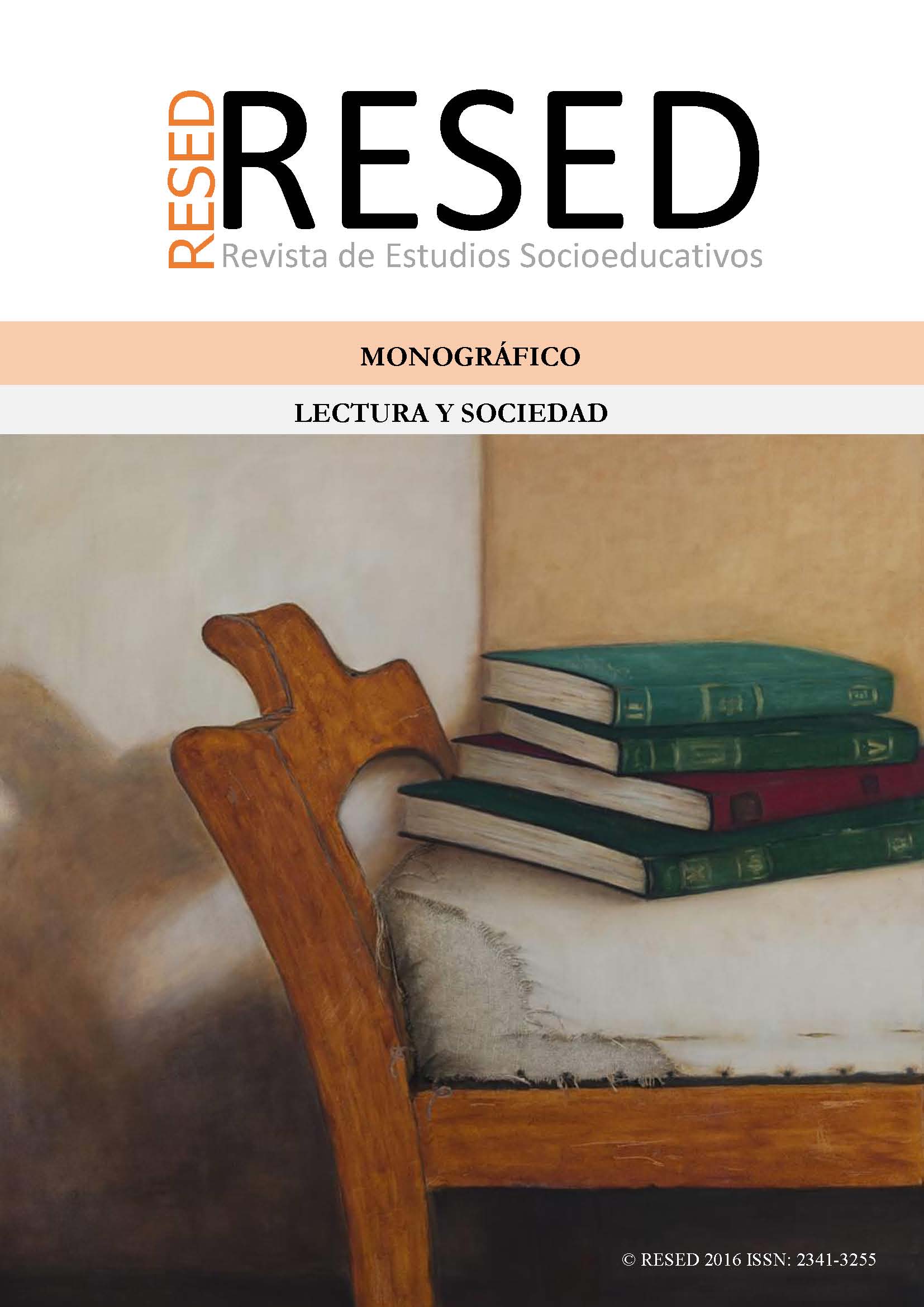Read with others. Contributions to the social dimension of reading

DOI
https://doi.org/10.25267/Rev_estud_socioeducativos.2016.i4.03Info
Abstract
The aim of present paper is to stress the social character of reading, avoiding consider it only as school activity. In this paper some academics reading practices are criticized, because they contribute to distort the original meaning of the literary reading, which is to understand and recognize the social world through the intimate world of the writer, and at the same time to use the literary and philosophical texts as a way of understanding of own life of readers. Understand a literary text is always an attempt to make sense of the existence and, as numerous authors point out, that search of meaning is makes better through the dialogue, in company of others readers. Reading groups are expressions of the desire of know and understand within a community. This article also highlights the important social role of books, reading or public libraries in collective disaster or individual affliction situations.
Keywords
Downloads
How to Cite
License

This work is licensed under a Creative Commons Attribution-NonCommercial 4.0 International License.
References
Allington, D. y Swann, J. (2009). Researching literary reading as social practice. Language and Literature, 18(3), 219–230.
Argüelles, J. D. (2013). ¿Es la lectura un derecho? 45 respuestas a una pregunta que muy pocos se formulan. México, D.F.: Solar Editores.
Báez, F. (2004). Historia universal de la destrucción de libros. De las tablillas sumerias a la guerra de Irak. Barcelona: Destino.
Bajtin, M. (1982). Estética de la creación verbal. México D. F.: Siglo XXI.
Barbier, F. (2015). Historia de las bibliotecas: de Alejandría a las bibliotecas virtuales. Buenos Aires: Ampersand.
Billington, J. (2011). Reading for Life: prison reading groups in practice and theory. Critical Survey, Special Issue, Reading and Writing in Prisons, 23(3), 67-85.
Clegg, J. et al. (2009). Language abilities of secondary age pupils at risk of school exclusion: A preliminary report. Child LanguageTeaching and Therapy, 25(1), 123-140.
Chambers, A. (2007). Dime. Los niños, la lectura y la conversación. México, D. F.: Fondo de Cultura Económica.
Escolar, H. (1985). Historia de las bibliotecas. Madrid: Fundación Germán Sánchez Ruipérez.
Fernández Avagliano, G. (2015). Efectos de la lectura compartida en un grupo de mujeres en prisión. Un estudio realizado en el Centro Penitenciario de Albolote. Trabajo Final de Máster. Universidad de Granada. [http://cort.as/qIHI]
Fish, S. (1992). Práctica sin teoría: retórica y cambio en la vida institucional. Barcelona: Destino.
Flecha, R. (1997). Compartiendo palabras. El aprendizaje de las personas adultas a través del diálogo. Barcelona: Paidós.
Freire, P. (1975). Pedagogía del oprimido. Madrid: Siglo XXI.
Freire, P. (1989). Alfabetización. Lectura de la palabra y lectura de la realidad. Barcelona: Paidós.
Gallagher, K. (2009). Readicide: How Schools are Killing Reading and what You Can Do about it. Portland, Maine: Stenhouse Publishers.
Halonen, A. et al. (2006). The role of learning to read in the development of problem behaviour: A cross-lagged longitudinal study. British Journal of Educational Psychology, 76, 517-534.
Hartley, J. (2002). The Reading Groups Book. 2002-2003 Edition. Oxford: Oxford University Press.
Hyder, E. (2013). Reading Groups, Libraries and Social Inclusion.Experiences of Blind and Partially Sighted People.Farnham: Ashgate.
IFLA (2015).Responding - Public Libraries and Refugees. [http://cort.as/qIHk]
Jaeger, P. T. et al., (2006). The 2004 and 2005 Gulf Coast Hurricanes: Evolving Roles and Lessons Learned for Public Libraries in Disaster Preparedness and Community Services. Public Library Quarterly, 25(3/4), 199-214.
Lahire, B. (2004). Del consumo cultural a las formas de la experiencia literaria. En Bernard Lahire (Comp.). Sociología de la lectura (p. 179-197). Barcelona: Gedisa.
López-Rubio Martínez, S. et al., (2010). Lenguaje y conducta: determinantes del fracaso académico y social. Una revisión de la literatura. Revista de Logopedia, Foniatría y Audiología, 30(3),144-150
Loza, M. (2004). Tertulias literarias. Cuadernos de Pedagogía, 341, 66-69.
Luperini, R. (2006). Insegnare la letteratura oggi. S. Cesario di Lecce: Manni.
Mata, J. (2008). Animación a la lectura. 10 Ideas Clave. Barcelona: Graó.
Muddiman, D. et al., (2000). Open to All? The public library and social exclusion: executive summary. London: The Council for Museums, Archives and Libraries. Library and Information Commission. Research Report 84.
Nussbaum, M. (2005). El conocimiento del amor. Ensayos sobre filosofía y literatura. Madrid: Antonio Machado Libros.
Peña Gallego, L. E. (2011). Las bibliotecas públicas de Medellín como motor de cambio social y urbano de la ciudad. BiD: textos universitaris de biblioteconomia i documentació, 27 (desembre). [http://cort.as/Qiif]. DOI: http://cort.as/qII7
Petit, M. (1999). Nuevos acercamientos a los jóvenes y la lectura. México, D. F.: Fondo de Cultura Económica.
— (2009). El arte de la lectura en tiempos de crisis. Barcelona: Océano.
Raphael, T. E. y McMahon, S. I. (1994).Book Club: An alternative framework for reading instruction. The Reading Teacher, 48(2), 102-116.
Ricoeur, P. (1995). Tiempo y narración I. México, D. F.: Siglo XXI.
Rosenblatt, L. M. (2002). La literatura como exploración. México, D. F.: Fondo de Cultura Económica.
Todorov, T. (2009). La literatura en peligro. Barcelona: Círculo de Lectores.
Vygotsky, L. S. (1979). El desarrollo de los procesos psicológicos superiores. Barcelona: Crítica.
Wells, G. (2001). Indagación dialógica. Hacia una teoría y una práctica socioculturales de la educación. Barcelona: Paidós.






